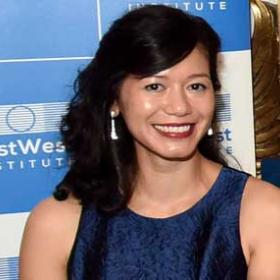
Working Group on Counterterrorism Cooperation in Afghanistan Convenes in Washington
BY: TERESA VAL AND JAMES DISALVATORE
On March 27 and 28, 2018, the EastWest Institute (EWI) convened its second meeting of the Joint U.S.-Russia Working Group on Counterterrorism in Afghanistan in Washington, D.C. Amidst a particularly tense time in the bilateral relationship, with the U.S. and Russian governments ordering expulsion of diplomats, U.S. and Russian participants assessed how the two countries, together with other regional stakeholders, can increase efforts to combat terrorism in Afghanistan.
Building on the themes from its inaugural meeting in Moscow in October 2017, the Working Group discussed a range of topics, including U.S. and Russian definitions of and approaches to counterterrorism; terrorist actors and trans-border networks in Afghanistan; regional perspectives on the terrorist threat in the war-torn country; and U.S. and Russian interests and counterterrorism strategies in Afghanistan.
Despite worsening relations between the U.S. and Russia, counterterrorism in Afghanistan remains an area of critical interest for both countries; however, Working Group experts agreed that shared interest does not necessarily imply or guarantee cooperation in the current political climate. For the U.S. and Russia to find common ground and advance cooperation, experts stressed the importance of frequent dialogue and engagement between the two countries to dispel misperceptions and make clear each other’s intentions.
Funded with the support of Carnegie Corporation of New York, the Working Group represents a multi-year initiative aimed at generating positive momentum in the U.S.-Russia relationship and driving much-needed dialogue at the Track 2 level, specifically with respect to counterterrorism efforts in Afghanistan. The Working Group will produce a joint threat assessment, which will provide policymakers with an independent, up-to-date assessment of the terrorist threat in Afghanistan and serve as the basis for future counterterrorism cooperation.
Following this plenary session, on March 29, several Russian and American Working Group experts participated in a discussion led by New York University’s Center on International Cooperation on possible U.S.-Russia Track 2 efforts on political settlement in Afghanistan. Hosted by the United States Institute of Peace, the session also included observers from the U.S. government among its attendees.
On March 30, the Center for Strategic and International Studies (CSIS) and EWI co-hosted a panel discussion on “After Syria: The United States, Russia, and the Future of Terrorism.” Moderated by Dr. Olga Oliker, the panel featured Dr. Ekaterina Stepanova and Dr. Irina Zvyagelskaya—both members of EWI’s Working Group—and Dr. Seth Jones, director of the Transnational Threats Project at CSIS. Panelists addressed emerging trends in global terrorism, how U.S. and Russian policies to counter the threat have evolved accordingly and lastly, what constructive roles both countries can play in shaping the counterterrorism agenda.
Photo credit: Anna Renard-Koktysh

